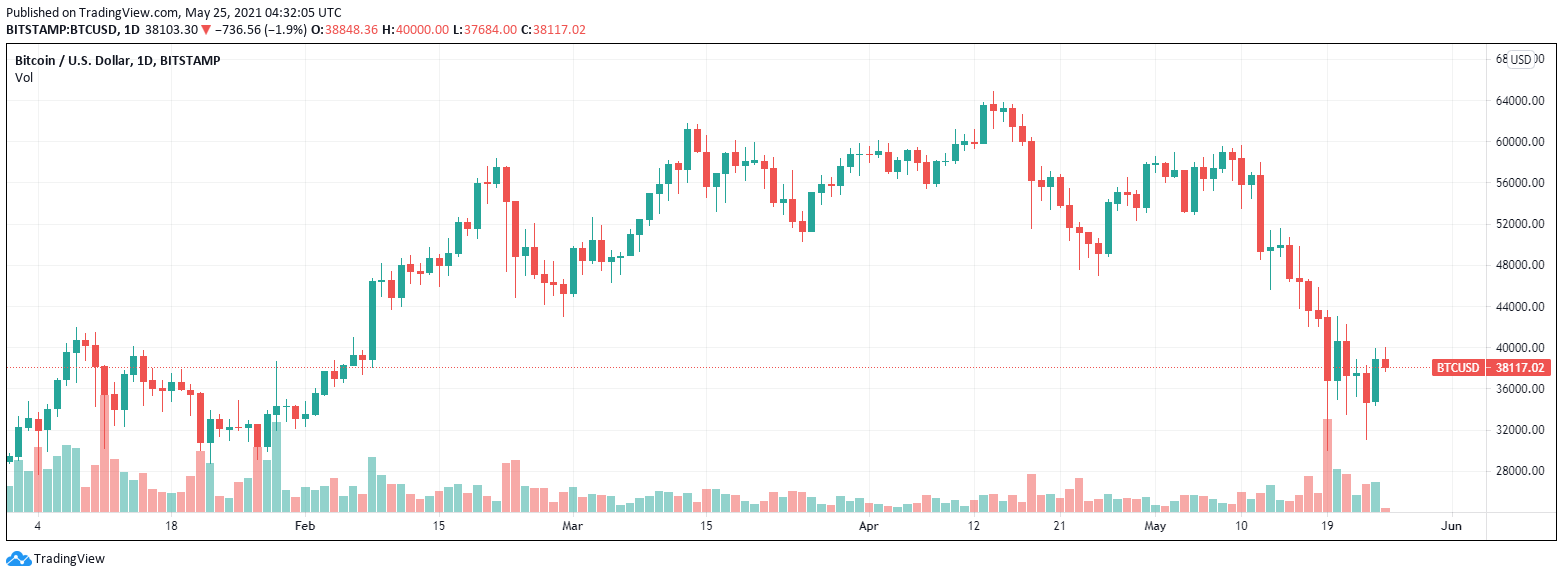- May 25, 2021
- Posted by: admin
- Category: BitCoin, Blockchain, Cryptocurrency, Investments
Earlier last week, the European Central Bank published a new report on the financial stability of the European Union. The report, titled the Financial Stability Review (FSR), detailed potential risks of Bitcoin and other crypto-related assets.
In the context of the broader economy, the ECB stated that “signs of exuberance” in crypto assets were potentially concerning, but that financial stability risks were limited.
“Signs of exuberance have also been observed in the renewed interest in crypto-assets, although financial stability appears limited.”
While the European Central Bank suggests that cryptos pose little to no risk, other governments have seen their rising use and transactional value as a threat to their sovereignty.
When Bitcoin and other cryptos surged to all-time highs earlier this year, the Indian government threatened a total ban. As the Lira crashed and the Turkish people flocked to crypto-assets for safe haven, the nation took steps to ban its use. South Korea, on the other hand, imposed such strict regulations that Okex and Binance shut down their operations in the country. The list goes on.
Related Reading | Breaking Down What South Korea’s Crypto Crackdown Means for the Industry
The ECB Addresses Bitcoin’s Potential Bubble, Corruption, and Environmental Risks
The central bank addressed that one of the main issues of Bitcoin and cryptocurrencies was their volatile, speculative nature — comparing the rising asset class to the tulip mania.
Related Reading: Deutsche Bank Turns Against Bitcoin Amid 50% Drop: Valuation is “Wishful Thinking”
“The surge in Bitcoin prices has eclipsed previous financial bubbles like the tulip mania and the South Sea Bubble in the 1600s and 1700s,” the report read.

“[Bitcoin’s] exorbitant carbon footprint and potential use for illicit purposes are grounds for concern. Crypto-assets are still not used widely for payments, and euro area institutions have little exposure to crypto-linked financial instruments, so financial stability risks appear limited at present.”
While the European government has yet to have taken any direct actions to stifle the growing industry, a new regulatory framework for cryptocurrencies has been in development since last year.
Like other economic powers such as the U.S. and China, the EU has entertained the idea of launching a central bank digital currency in the near future.
Featured image from UnSplash